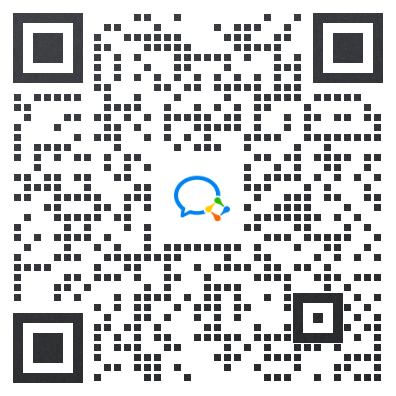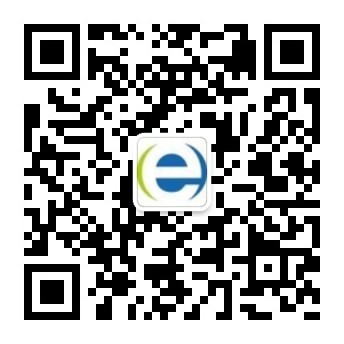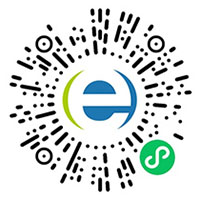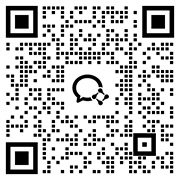2026年考博英語外刊第6期丨The Key to Critical Self-Awareness
摘要:9月是考博英語復習的關鍵期。外刊閱讀是提升閱讀速度和理解深度的“黃金鑰匙”。本期精選2025年《大西洋月刊》的一篇文章,助力同學們攻克考博英語閱讀理解!
本期精選2025年《大西洋月刊》的一篇文章,助力考生們攻克考博英語閱讀理解。
雜志簡介:
The Atlantic《大西洋月刊》,是美國歷史最悠久、最具聲望的綜合性月刊之一,創刊于1857年。 它是一本涵蓋文學、政治、科學、藝術、經濟、社會文化等廣泛領域的高端綜合性期刊。自創刊起,它就以獨立、深刻、高質量著稱。考博英語閱讀理解的文章來源多出自英美主流報刊,而《大西洋月刊》因其包含大量高級詞匯、表達和廣泛的話題覆蓋,成為重要的備考資源之一。
本期內容
The Key to Critical Self-Awareness
一、閱讀全文
【1】Know thyself is the most famous maxim of Greek philosophy, carved into stone on the Temple of Apollo at Delphi. Why? you might ask. The greatest philosophers and writers throughout history are more likely to tell you why not, so foundational is the idea of self-knowledge to a meaningful existence. In his tragedy Thyestes, the Stoic philosopher Seneca writes, “Death lies heavily on him / Who, though to all the world well known, / Is stranger to himself alone.” And as Shakespeare asserts in his comedy As You Like It, “The fool doth think he is wise, but the wise man / knows himself to be a fool.”
【2】What exactly does it mean to know yourself? For neuroscientists, the answer is straightforward enough: Self-knowledge is the combination of two forms of information, direct appraisals (your own self-beliefs) and reflected appraisals (your perception of how others view you). The first generally employs the parts of the brain associated with a first-person perspective, such as the posterior cingulate; the second with regions associated with emotion and memory, such as the insula, orbitofrontal, and temporal cortex.
【3】This technical definition of self-knowledge concerns only the mechanisms involved and does not say anything about the quality of the information: In effect, if you think you’re a rooster and believe others see you as one too, that counts as self-knowledge. I strongly suspect that the thinkers at Delphi had a bit more in mind than this; they no doubt meant “Know thyself accurately.” That is a much taller order, requiring a huge quantity of truthful information about your interior states—attitudes, beliefs, emotions, traits, motives—over time, in all three of its phases: present, past, and future. Accurate self-knowledge also means avoiding mistakes and correcting illusions, being completely honest with yourself, possessing a reliable memory, and predicting how you will feel and react in the future.
【4】 By this impossibly exacting standard, you don’t know yourself perfectly, and I don’t know myself either. As a matter of fact, we probably all overestimate our capacity for accurate self-knowledge. Many studies have shown how flawed people’s self-assessments are. Psychological experiments have revealed that ratings of one’s own skill and performance are “moderate to meager” in accuracy and are generally less sound than external evaluations. Similarly, scholars have demonstrated that we can’t even predict our future behavior better than others can predict it for us. Cock-a-doodle-do, you’re not who you think you are.
【5】One reason we know ourselves so poorly is that we’re prone to major cognitive errors about what we see happening in our lives. Researchers have found that humans are vulnerable to gross omissions, to the extent that we miss seeing our problems, mistakes, and opportunities. We exist, you might say, in a fog of meta-ignorance: Not only do we not know ourselves; we don’t know we don’t know ourselves.
【6】 Many things in our lives go unnoticed because we lack language for them and don’t understand them. This is called hypocognition—meaning a deficit of cognition (as opposed to hypercognition). In studies exploring this phenomenon, British participants were more likely to notice cheese than Asian dumplings in their daily lives, while Chinese participants noticed the reverse. A less trivial instance than foodstuffs might involve the way some trauma affects your daily life and who you are, but you are unable to recognize its impact because you have no knowledge about the effects of trauma. (That said, having this knowledge can lead to pitfalls, because learning about trauma can cause a person to incorrectly identify its cause and origin.)
【7】Much of our self-knowledge deficit comes from the willful ignorance—dishonesty, really—that we indulge to protect our self-esteem. For more than a century, psychologists have observed the human tendency to use motivated reasoning to reassure ourselves that our opinions are right, to rationalize bad choices, to ignore information that reflects critically on us, and generally to maintain positive illusions and find ways to avoid facing reality-based negative emotions. So integral to our being are these traits that collectively they have been called our “psychological immune system.” This characteristic rationalizing is almost certainly based in our biology; neuroscientists have shown that people presented with critical evaluations of themselves display signs of stimulus in the brain’s limbic regions associated with threat perception.
【8】 This human capacity to maintain ignorance in the face of potentially negative self-knowledge might make you more comfortable in the short term. But as is true of so much human craving for comfort, it leads to many missed opportunities for greater well-being and success in the long run. Research has shown that more honest self-awareness—of both positive and negative information—improves self-development because you know what to improve. This enables better personal decision making rooted in accurate information, especially when striving toward goals. And experiments in the workplace have demonstrated that good self-awareness enhances job contentment, enthusiasm, and communication.
二、開始做題
1. According to neuroscientists, what constitutes self-knowledge?
A. Only direct appraisals of one’s own abilities.
B. Direct appraisals and reflected appraisals.
C. The ability to predict future behavior accurately.
D. A complete understanding of one’s emotions without external input.
2. Why do the authors suggest that “Know thyself accurately” is a much taller order than simply “Know thyself”?
A. Because accurate self-knowledge is impossible to achieve.
B. Because it requires a large amount of truthful information about your interior states.
C. Because most people are not interested in knowing themselves accurately.
D. Because it involves understanding only one’s present state, not past or future.
3. What is one of the reasons why humans are poor at self-knowledge, according to the article?
A. We lack the ability to reflect on our own behavior.
B. We are prone to major cognitive errors and omissions.
C. We have too much information about ourselves.
D. We are not interested in our own self-development.
4. What is the main idea of the article?
A. The importance of accurate self-knowledge and the challenges in achieving it.
B. The history of the phrase “Know thyself” and its origins in Greek philosophy.
C. The role of neuroscientists in understanding self-knowledge.
D. The benefits of ignoring negative information for improving self-awareness.
答案+解析
1.【答案】B
【考查點】細節事實題。
【解題思路】根據題干關鍵詞neuroscientists和self-knowledge定位到文章第二段,由第二句For neuroscientists, the answer is straightforward enough: Self-knowledge is the combination of two forms of information, direct appraisals (your own self-beliefs) and reflected appraisals (your perception of how others view you).(對于神經科學家來說,答案相當明確:自我認知是兩種形式的信息綜合而成的,即直接評價【你的自我信念】和反射評價【你對他人如何看待自己的感知】)可知,自我認知是直接評價和反射評價的結合,故選項B正確。選項A只提到了直接評價,忽略了反射評價,故排除;選項C文章并未提及,故排除;選項D與文中提到的反射評價相矛盾,故排除。
2.【答案】B
【考查點】細節事實題。
【解題思路】根據題干關鍵詞Know thyself accurately和a much taller order定位到文章第三段,由第三句That is a much taller order, requiring a huge quantity of truthful information about your interior states—attitudes, beliefs, emotions, traits, motives—over time, in all three of its phases: present, past, and future.(這一要求可高得多,它需要個體掌握海量關于自身內在狀態的真實信息——涵蓋態度、信念、情緒、性格特質、動機等方方面面,且需跨越當下、過往與未來三個時間維度。)可知,準確的自我認知需要大量關于自身內在狀態的真實信息,故選項B正確。選項A在文中并未提及,且過于絕對,故排除;選項C在文中并未提及,故排除;選項D與文中提到的三個時間維度相矛盾,故排除。
3.【答案】B
【考查點】細節事實題。
【解題思路】根據題干關鍵詞reasons 和poor at self-knowledge定位到文章第五段,由第一句One reason we know ourselves so poorly is that we’re prone to major cognitive errors about what we see happening in our lives.(我們之所以如此不了解自己,其中一個原因在于,我們極易在解讀自身生活中所發生之事時犯下嚴重的認知錯誤。)可知,人類自我認知差的一個原因是我們容易產生嚴重的認知錯誤和遺漏,故選項B正確。選項A、D在文中并未提及,故排除;選項C與第三段中提到的準確的自我認知有關,與題目所問的缺乏自我認知相矛盾,故排除。
4.【答案】A
【考查點】主旨大意題。
【解題思路】通讀全文,文章首先引用了希臘哲學中的名言Know thyself,并指出準確自我認知的重要性。接著,文章從神經科學的角度解釋了自我認知的構成,然后指出了人類在自我認知上的不足和原因,包括認知錯誤、元無知和故意忽視等。最后,文章強調了準確自我認知對于個人發展和決策的重要性。因此,文章的主旨大意應該是準確自我認知的重要性以及實現它的挑戰,故選項A正確。選項B只是文章開頭的引入部分,并非主旨,故排除;C選項只是文章中的一部分內容,沒有涉及主旨,故排除;由文章第八段第三句Research has shown that more honest self-awareness—of both positive and negative information—improves self-development because you know what to improve.(研究表明,更為坦誠的自我認知——包括正面和負面信息——有助于自我發展,因為你知道自己需要改進什么。)可知,選項D與文章內容不符,故排除。
三、重點詞匯+長難句
【全文共22個重點詞匯,看到不熟悉的詞匯,記得劃線哦!】
thyself /ea??self/ pron. 你自己(古語)
maxim /?m?ks?m/ n. 格言;準則
stoic /?st???k/ adj. 斯多葛派的
doth /d?θ/ v. 動詞do的老式第三人稱單數形式
appraisal /??pre?z(?)l/ n. 評估;評價
cortex /?k??teks/ n. 皮層,(尤指)大腦皮層
Delphi /?delfa?/ n. 特爾斐(希臘古都)
interior /?n?t??ri?(r)/ adj. 內心的,本質的
exacting /?ɡ?z?kt??/ adj. 嚴格的;苛求的
overestimate /???v?r?est?me?t/ v. 過高估計(能力、影響或價值)
meager /?mi?ɡ?(r)/ adj. 貧乏的;(數量)少的,不足的
sound /sa?nd/ adj. 合理的,可靠的
prone /pr??n/ adj. 有做……傾向的,易于……的
vulnerable /?v?ln?r?bl/ adj.(身體或精神)脆弱的,易受傷的
trivial /?tr?vi?l/ adj. 瑣碎的,不重要的
trauma /?tr??m?/ n. 精神創傷,心理創傷
pitfall /?p?tf??l/ n. 隱患;陷阱
willful /?w?lf(?)l/ adj. 有意的;故意的
indulge /?n?d?ld?/ v. 縱容;沉溺
reassure /?ri??????(r)/ v. 使安心,使消除疑慮
rationalize /?r??(?)n?la?z/ v. 對…進行合理解釋,為…辯解
limbic /?l?mb?k/ adj. 邊的;緣的
掃碼進入小程序>>> 博士報名條件查詢
| 掃碼添加課程顧問>>> 考博英語題型咨詢
|
備考資料:考博英語高頻詞匯丨考博英語各院校考情分析丨120+院校考博英語真題(中科院、社科院、央美等)
| 課程名稱 | 課程價格 | 有效期 | 課程鏈接 |
| 2026年博士招生簡章匯總 | 免費 | 永久 | 立即查看 |
120+院校歷年考博英語真題 | 免費 | 365天 | 免費領取 |
2026考博英語高頻詞匯 | 免費 | 365天 | 免費領取 |
考博英語各院校考情分析合集 | 免費 | 30天 | 點擊試聽 |
考博上岸學員備考經驗分享 | 免費 | 365天 | 點擊試聽 |
| 個性化備考指導課程(小白入門) | 免費 | 365天 | 點擊試聽 |
| 考博英語各題型解題技巧課合集 | 免費 | 365天 | 點擊試聽 |
| 決勝博士之路:英語備考全攻略 | 免費 | 365天 | 點擊試聽 |
| 考博英語-中譯英破題妙招 | 免費 | 365天 | 點擊試聽 |
| 考博英語-中譯英突破命題核心 | 免費 | 365天 | 點擊試聽 |
| 考博英語中譯英之句式選擇 | 免費 | 365天 | 點擊試聽 |
| 考博英語英譯中之定語從句的翻譯技巧 | 免費 | 365天 | 點擊試聽 |
| 長難句與閱讀雙管齊下 | 免費 | 365天 | 點擊試聽 |
| 考博英語-寫作預測復盤公開課 | 免費 | 365天 | 點擊試聽 |
| 通用考博4000+詞匯朗讀視頻教程 | 免費 | 365天 | 點擊試聽 |
| 更多考博英語課程請點擊查看 | |||
延伸閱讀
- 南開大學2026年博士研究生招生簡章
- 北京師范大學2026年博士研究生招生簡章
- 大連理工大學2026年博士研究生招生章程
- 上海交通大學2026年博士研究生招生簡章(校本部)
- 天津大學醫學院2026年博士研究生招生辦法
- 復旦大學2026年招收攻讀博士學位研究生章程

考博英語微信公眾號

了解更多考試動態
考博英語備考資料免費領取
去領取

根據120+院校真題,整理出考博英語歷年真題和模擬試題訓練,助力快速備考。
- 1
- 2
- 8
 專注在線職業教育24年
專注在線職業教育24年








 掃描二維碼
掃描二維碼
 掃描二維碼
掃描二維碼








